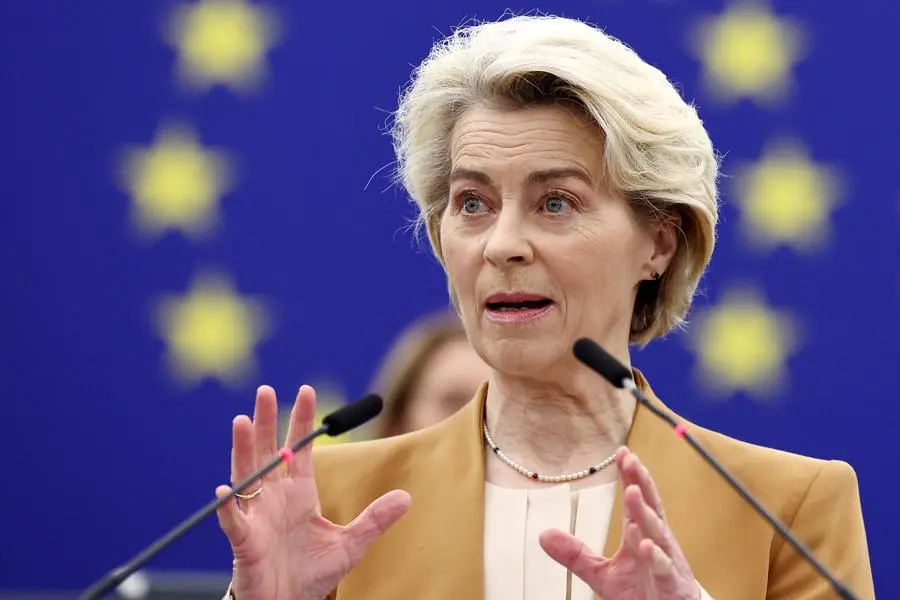PHOTO
EU chief Ursula von der Leyen on Tuesday recommended the bloc bury a plan to cut pesticide use in agriculture as a concession to protesting European farmers.
The original proposal, put forward by her European Commission as part of the European Union's green transition, "has become a symbol of polarisation," she told the European Parliament in Strasbourg, France.
Noting that the plan -- to halve chemical pesticide use in the EU by the end of the decade -- had also stalled in discussions in the European Parliament and in the European Council representing EU member countries, von der Leyen said she would ask her commission "to withdraw this proposal".
The pesticide issue is just one of a long list of grievances that have prompted a mass protest movement by EU farmers, who in recent weeks have used tractors to block key roads to complain of shrinking income and rising production costs.
With far-right and anti-establishment parties -- which are predicted to make significant gains in June's European elections -- latching onto the farmers' movement, the environment debate has turned politically explosive.
Last week, 1,300 tractors clogged the area around an EU summit in Brussels, forcing their revolt to the top of the leaders' agenda and resulting in a number of other concessions, especially in France.
Protests were continuing on Tuesday, including in the Netherlands -- and with demonstrations called for outside the European Parliament in Strasbourg.
"Many of them feel pushed into a corner," von der Leyen acknowledged, adding: "Our farmers deserve to be listened to."
At the same time, though, she emphasised that European agriculture "needs to move to a more sustainable model of production" that was more environmentally friendly and less harmful to soil quality.
"Perhaps we have not made that case convincingly," she said.
To get there, von der Leyen said "trust" had to be built between farmers and policymakers, and she pointed to consultative dialogue Brussels has started with a broad range of representatives in the agri-food sector.
Von der Leyen said that, while she wanted to withdraw the proposed law on pesticides, "the topic stays" even if "a different approach is needed".
She suggested that the European Commission could come up with a revised legislative proposal at a later date -- an initiative that would likely fall to the next commission resulting from EU elections taking place in June.
Von der Leyen has not yet said whether she intends to seek a new mandate at the head of that commission.





















